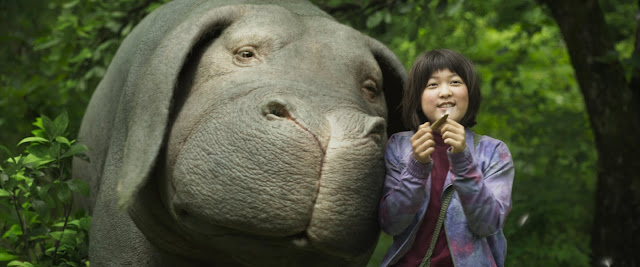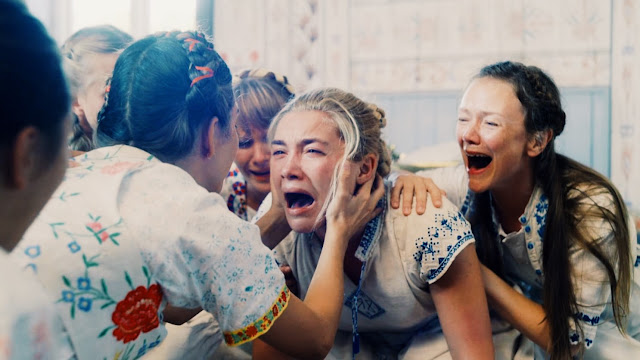Faces (1968)
FILM CLASSIC REVIEW #6
Husbands vs. Wives - an analysis of Faces
The sanctity of Marriage just got a shock thorough it's veins. John Casssavates's film Faces is a heartbreaking, urgent, real journey through the darkest realms of adultery. Cassavetes must be a traditionalist when it comes to marriage, because he makes this seem like a cautionary tale. A sense of how depression, lust and exploration outside of marriage could lead to vile, uncertain consequences. This movie is absolutely beautiful, and it's earned a spot on my list of the best films that I have ever seen. As grim as this movie is, it captures absolute desperation like few movies have ever done.
The characters, Richard and Maria Frost are seen dipping their toes into the lustful life of mistresses and swinging. Not only do they want to mess around between the sheets with a dirty concubine, but they want to experience the love that they never found in each other, and rekindle the times of their youth. In both sections of their escapades, they dance and sing with their mistresses, and just laugh the night away with the swinging cohorts. Each scene lasts about 20 minutes a piece, and examine the surreal experience closely, almost like a stage play would have it. These scenes exist to also make note of the fantastic performances between every character on screen, and they shine brightly. Gena Rowlands's character of the mistress is seen as capitulating to the every fantasy of the men she fools around with, while at the same time losing her dignity and self-respect with every time the men fight for her attention. The character of Maria's concubine, Chet, on the other hand, is a commanding and brooding performance. We see him as a man who wants to take control of multiple women, and seemingly unprepared when his lust almost kills Maria after he lets her overdose on sleeping pills. That scene in particular is the greatest in the entire movie, as it beautifully shows the lowest point in Maria's life. How did she go from a lovely housewife to being unconscious in her own home, and a creepy man slaps her silly and chokes her violently in order to bring her back to life? Cassavetes plays up the ridiculousness of the situation, in order to shock us and make us think.
The feeling of the entire picture was disorienting and just plain wrong in every aspect. The couple seemed way over their heads the entire time, and it what also seemed like a life or death situation. Every person in the rooms seemed to be on the verge of screaming, or crying or dying. The tension here is so fierce, you could cut it with a butter knife. Again, I focus on the acting, because that is where the film shines the brightest. It is pitch perfect. The cinematography is world's better here than it was in Shadows, and it gives us the opportunity to explore the spaces that they live in. For example, the scene in which Richard comes home and eats dinner is filmed tensely, with shots that carefully and seamlessly follow his every move through the house and around his own wife. I know that there were clear cuts, but I simply didn't notice them. Everything seemed to be going in real time, and the performances helped make that time seem genuine. Each situation and scene had a build up period that was so frighteningly real. Emotions just build throughout all of the scenes. John Cassavetes proves here more than ever that he is the master and true father of the independent cinema movement, by making a film so profound in nature, without having any big money and sets to work around. In fact, here, he captures much more than any Hollywood film is willing to capture. Cassavetes was always a Hollywood golden boy, but I think that he should've just walked entirely away, and kept making incredible films. I am now reminded of how amazing it was to meet his son, Nick, at the Syracuse International Film Festival. I know now how important it was for us to see him, and how the Cassavetes name helps us as filmmakers in the end.
Husbands vs. Wives - an analysis of Faces
The sanctity of Marriage just got a shock thorough it's veins. John Casssavates's film Faces is a heartbreaking, urgent, real journey through the darkest realms of adultery. Cassavetes must be a traditionalist when it comes to marriage, because he makes this seem like a cautionary tale. A sense of how depression, lust and exploration outside of marriage could lead to vile, uncertain consequences. This movie is absolutely beautiful, and it's earned a spot on my list of the best films that I have ever seen. As grim as this movie is, it captures absolute desperation like few movies have ever done.
The characters, Richard and Maria Frost are seen dipping their toes into the lustful life of mistresses and swinging. Not only do they want to mess around between the sheets with a dirty concubine, but they want to experience the love that they never found in each other, and rekindle the times of their youth. In both sections of their escapades, they dance and sing with their mistresses, and just laugh the night away with the swinging cohorts. Each scene lasts about 20 minutes a piece, and examine the surreal experience closely, almost like a stage play would have it. These scenes exist to also make note of the fantastic performances between every character on screen, and they shine brightly. Gena Rowlands's character of the mistress is seen as capitulating to the every fantasy of the men she fools around with, while at the same time losing her dignity and self-respect with every time the men fight for her attention. The character of Maria's concubine, Chet, on the other hand, is a commanding and brooding performance. We see him as a man who wants to take control of multiple women, and seemingly unprepared when his lust almost kills Maria after he lets her overdose on sleeping pills. That scene in particular is the greatest in the entire movie, as it beautifully shows the lowest point in Maria's life. How did she go from a lovely housewife to being unconscious in her own home, and a creepy man slaps her silly and chokes her violently in order to bring her back to life? Cassavetes plays up the ridiculousness of the situation, in order to shock us and make us think.
The feeling of the entire picture was disorienting and just plain wrong in every aspect. The couple seemed way over their heads the entire time, and it what also seemed like a life or death situation. Every person in the rooms seemed to be on the verge of screaming, or crying or dying. The tension here is so fierce, you could cut it with a butter knife. Again, I focus on the acting, because that is where the film shines the brightest. It is pitch perfect. The cinematography is world's better here than it was in Shadows, and it gives us the opportunity to explore the spaces that they live in. For example, the scene in which Richard comes home and eats dinner is filmed tensely, with shots that carefully and seamlessly follow his every move through the house and around his own wife. I know that there were clear cuts, but I simply didn't notice them. Everything seemed to be going in real time, and the performances helped make that time seem genuine. Each situation and scene had a build up period that was so frighteningly real. Emotions just build throughout all of the scenes. John Cassavetes proves here more than ever that he is the master and true father of the independent cinema movement, by making a film so profound in nature, without having any big money and sets to work around. In fact, here, he captures much more than any Hollywood film is willing to capture. Cassavetes was always a Hollywood golden boy, but I think that he should've just walked entirely away, and kept making incredible films. I am now reminded of how amazing it was to meet his son, Nick, at the Syracuse International Film Festival. I know now how important it was for us to see him, and how the Cassavetes name helps us as filmmakers in the end.





Comments
Post a Comment